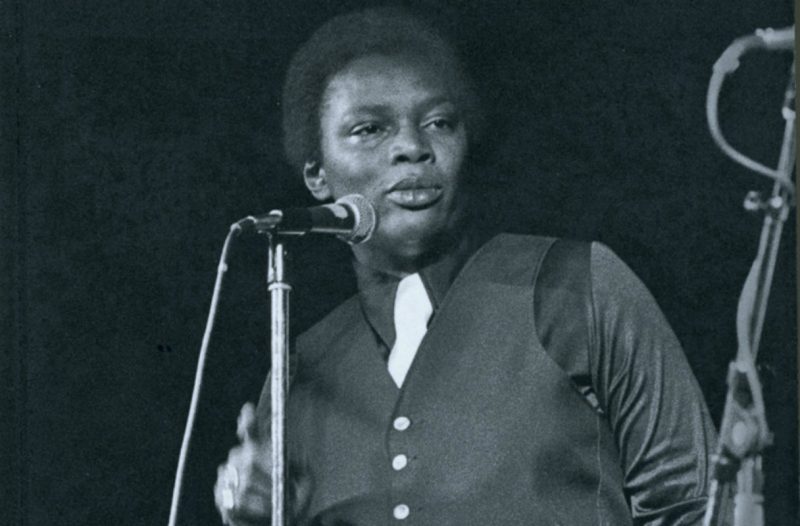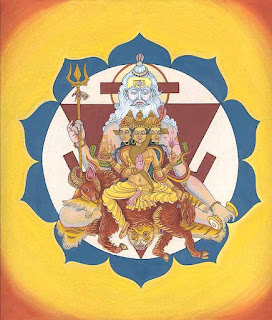10 Men
Blue Planetary Eagle
I hold the Soul
Of a ruby Moon –
Planetary Eagle am I
In harmonic Blue
The red Moon of Prophecy
Purity – Fluidity
Elixir rare –
Wine divine
Transubstantiation’s Moon
Planetary Planet of Initiation –
Dimensional Ages Shift
From Three to Four and Five
The Love of the Christos
Flows this Time –
Anointing, Transmuting
Evolving through
The Revolving Door
Of Hunab K’u
One Maker of Movement and Measure.
©Kleomichele Leeds
Pat Parker
Pat Parker (January 20, 1944 – June 19, 1989) was an African-American lesbian feminist poet and activist.
Early life
Patricia Cooks was born on January 20, 1944, in Houston, Texas, to Marie Louise (née Anderson) and Ernest Nathaniel Cooks. Marie Louise worked as a domestic worker and Ernest retreaded tires. She was the youngest of four daughters. The family lived first in the Third Ward and then moved to the Sunnyside neighborhood when Parker was four years old.
She left home at 17 and moved to Los Angeles, California, to attend college. She earned an undergraduate degree at Los Angeles City College and a graduate degree at San Francisco State College. She married playwright Ed Bullins in 1962. Parker and Bullins separated after four years. She later said that her ex-husband was physically violent and that she was "scared to death". She married Robert F. Parker, writer, and publisher, but decided that the "idea of marriage... wasn't working" for her. She began to identify as a lesbian in the late 1960s, and, in a 1975 interview with Anita Cornwell stated: "after my first relationship with a woman, I knew where I was going."
Career
Parker worked from 1978 to 1988 as the executive director of the Oakland Feminist Women's Health Center. Parker was involved in the Black Panther Movement, in 1979 she toured with the "Varied Voices of Black Women", a group of poets and musicians that included Linda Tillery, Mary Watkins & Gwen Avery. She founded the Black Women's Revolutionary Council in 1980, and she also contributed to the formation of the Women's Press Collective, as well as being involved in wide-ranging activism in gay and lesbian organizing.
Pat Parker was asked by her father to take "the freedom train of education," Parker moved to Oakland California, in the early 1970s to pursue writing and potential opportunities for activist work. Pat Parker worked from 1978 to 1987 as a medical coordinator at the Oakland Feminist Women's Health Center, which Parker helped to expand. Parker also participated in political activism and had early involvement with the Black Panther Party, Black Women's Revolutionary Council and formed the Women's Press Collective. Parker participated in many forms of activism especially in/regarding gay and lesbian communities, domestic violence, and rights of people of color.
Writing
Parker gave her first public poetry reading in 1963 in Oakland. In 1968, she began to read her poetry to women's groups at women's bookstores, coffeehouses, and feminist events.
Judy Grahn, a fellow poet, and a personal friend identifies Pat Parker's poetry as a part of the "continuing Black tradition of radical poetry".
Cheryl Clarke, another poet, and peer identifies her as a "lead voice and caller" in the world of lesbian poetry. Designed to confront both black and women's communities with, as Clarke notes, "the precariousness of being non-white, non-male, non-heterosexual in a racist, misogynist, homophobic, imperial culture." Clarke believes that Parker articulates, "a black lesbian-feminist perspective of love between women and the circumstances that prevent our intimacy and liberation."
Parker and Audre Lorde first met in 1969 and continued to exchange letters and visits until Parker's death in 1989. Their collaboration inspired many, including lesbian-feminist blues/R&B singer Nedra Johnson, whose song "Where Will You Be?" has become something of a feminist anthem in the USA. Audre Lorde and Pat Parker shared common themes within poetry they wrote as well. Audre Lorde's piece "The Transformation of Silence into Language and Action" talks extensively about action through language, a similar concept seen in Pat Parker's "Where will you be".
Womanslaughter
Parker's elder sister, Shirley Jones, was shot and killed by her husband. Parker wrote the autobiographical poem, Womanslaughter (1978), based on this event.
In the poem, Parker notes:
Her things were his
including her life.
The perpetrator was convicted of "womanslaughter", not murder, because:
Men cannot kill their wives.
They passion them to death.
He served a one-year sentence in a work-release program. Parker brought this crime to the International Tribunal on Crimes against Women in 1976 in Brussels, vowing:
I will come to my sisters
not dutiful,
I will come strong.
Death
Parker died on June 19, 1989, of breast cancer at the age 45 in Oakland, California. The national lesbian-feminist community mourned her loss, and several things have been named after her, such as Pat Parker Place, a community center in Chicago. She was survived by her long-time partner, Marty Dunham, and her daughters Cassidy Brown and Anastasia Jean.
Tributes
The Pat Parker/Vito Russo Center Library in New York City is named in honor of Parker and fellow writer, Vito Russo.
The Pat Parker Poetry Award is awarded each year for a free verse narrative poem or dramatic monologue by a black lesbian poet.*
MEN
Kin 75: Blue Planetary Eagle
I perfect in order to create
Producing mind
I seal the output of vision
With the planetary tone of manifestation
I am guided by the power of abundance
I am a polar kin
I extend the blue galactic spectrum.
The fifth-dimensional being is the pure electronic level or the superior, higher Self or I.*
*Star Traveler's 13 Moon Almanac of Synchronicity, Galactic Research Institute, Law of Time Press, Ashland, Oregon, 2018-2019.
The Sacred Tzolk'in
Manipura Chakra (LImi Plasma)





No comments:
Post a Comment